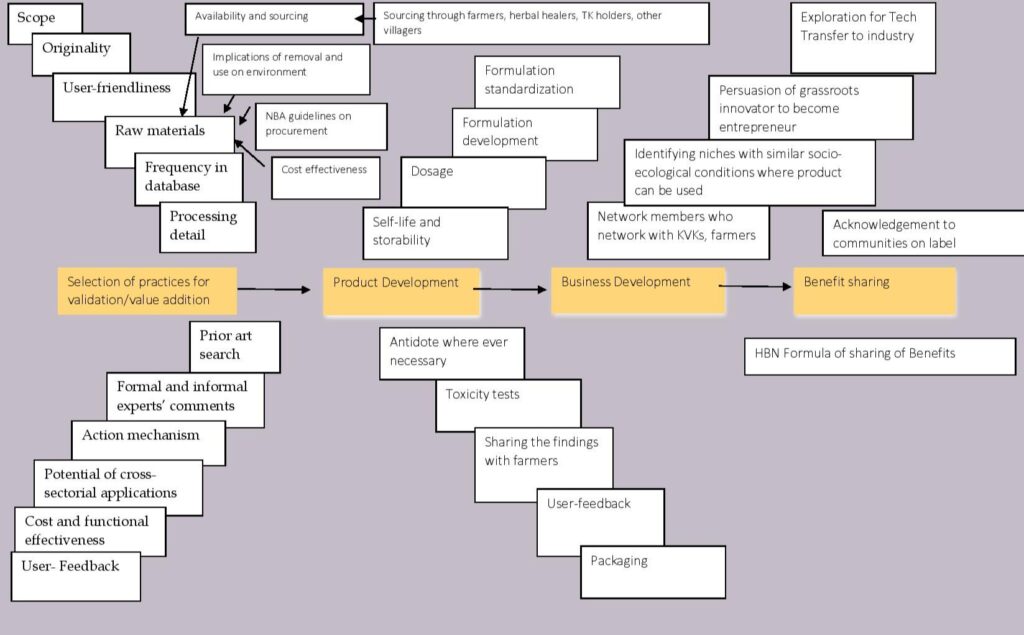Prototyping, Validation & Value-Addition
Many of the grassroots ideas are undeveloped and require experimentation, refinement, and validation. Prototyping can be done in-house or by a third party. Prototyping requires an in-house team with expertise in a variety of fields (e.g., engineering, agricultural or veterinary science, and business development). To speed up prototyping, build the first few pieces for lab and field testing, and even manufacture early orders, hence, GIAN is setting up a fabrication/Community Innovation lab in this upcoming premises at GIDC, Sanand. Our sister organization SRISTI has its own natural products lab, which helps to validate and provide value to community herbal practices.
Because grassroots innovators work under such economic and socio-ecological constraints, they are likely to be adamant about their ideas and may need persuading to try something new. In the lab and in the field, prototypes must be tested and validated. Trials must be conducted with existing and potential clients from various industries and geographies. Understanding the variety in performance in diverse socio-ecological environments necessitates testing grassroots technologies in the field. Both value addition and validation needs the support of formal R&D institutions (e.g. scientists, designers, regulatory agencies). Our volunteers come from different backgrounds (scientists, IP attorneys, farmers, entrepreneurs, designers, innovators, students, interns) and bring in a range of skill sets into the system. Certain tasks may be done through collaboration with other institutions or by hiring professionals at subsidized rates. Some of the graphics/product designers, IP firms, manufacturers provide their professional services to the Honey Bee Network at subsidized rates.
For agricultural innovations, multi-location trials under various agro-climatic conditions are critical. It may be challenging for a single institution to conduct all of the trials while modern scientific instruments and procedures must validate grassroots discoveries and relevant traditional knowledge. As a result, it is critical to connect informal science actors with formal science. GIAN acts as a bridge between the two working with the Industrial Design Centre, IIT-Bombay, National Institute of Design, NIT Srinagar, Central University of Jammu, SKUAST, KUTIC-Haryana, etc.
A team of dedicated IPR attorneys provides pro bono advice to our innovators for filing intellectual property rights (IPR) . Several patent attorneys have provided services at highly subsidized rates. GIAN had a patent assistance cell, supported by the Government of Gujarat, where the patent filing fee was reimbursed by the state government to GIAN (and in turn to the innovator) in full for patents filed in India and in half for the patents filed in the US. GIAN continues to work towards protecting the intellectual property rights of the innovators and knowledge holders.
Owing to their small markets, many grassroots innovations require small production lines. Yet, small production lines still need to be made efficient through different ways like standard component analysis can help the innovators to procure standard parts from the market rather than trying to make each component. We help to get various technologies tested from recognised labs and institutions in the relevant area.


